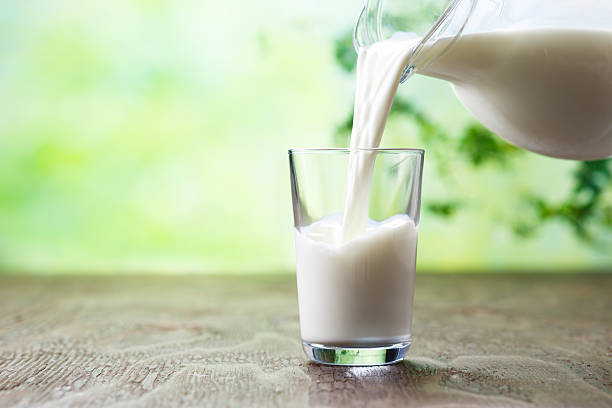Milk is a staple in many diets around the world, and for good reason: it is a rich source of important nutrients like calcium, phosphorus, and vitamin D. But is milk healthy for you? The answer is not so simple.
First, let’s take a look at the nutritional value of milk. One cup of whole milk contains about 150 calories, 8 grams of fat, 8 grams of protein, and 12 grams of carbohydrates. It is also an excellent source of calcium, providing about 30% of the recommended daily value. Calcium is essential for strong bones and teeth, as well as muscle and nerve function. Milk is also a good source of phosphorus, which plays a role in energy metabolism and the formation of strong bones and teeth. Vitamin D, which is necessary for the absorption of calcium, is also found in milk.
In addition to these essential nutrients, milk also contains other important vitamins and minerals such as Vitamin B12, potassium, and magnesium. It also contains small amounts of other vitamins and minerals such as Vitamin A, Vitamin K, Vitamin E, and zinc.
However, not all types of milk are created equal. Whole milk, which contains 3.25% milk fat, is the most nutrient-dense form of milk. Skim milk, on the other hand, has had the fat removed and contains about 90 fewer calories and 5 grams less fat per cup than whole milk. It also contains slightly less calcium, about 25% of the recommended daily value per cup.
So, is milk healthy for you? The answer is not so simple. Some research suggests that consuming milk and other dairy products can lower the risk of osteoporosis, while other studies have found no association between dairy consumption and bone health. Additionally, a diet high in saturated fat, which is found in high amounts in whole milk, has been linked to an increased risk of heart disease.
For those who are lactose intolerant, cow’s milk can also be a problem. Lactose is a type of sugar found in milk, and people with lactose intolerance have difficulty digesting it. Symptoms of lactose intolerance can include bloating, gas, and diarrhea.
Another potential concern is the presence of hormones and antibiotics in milk. Many cows are given hormones to increase milk production and antibiotics to prevent disease. While the levels of these substances found in milk are generally considered safe, some people may be concerned about consuming them.
In conclusion, milk is a nutritious food that is a good source of many essential nutrients. However, it is not without its drawbacks. Whole milk is high in saturated fat and calories, and people who are lactose intolerant may have difficulty digesting it. Additionally, concerns about the presence of hormones and antibiotics in milk may be a concern for some people. Ultimately, whether or not milk is healthy for you depends on your individual dietary needs, preferences, and health concerns. It’s always recommended to consult a doctor, dietitian or any other healthcare professional before making any changes to your diet.

 Home
Home Health
Health Diet & Nutrition
Diet & Nutrition Living Well
Living Well More
More












